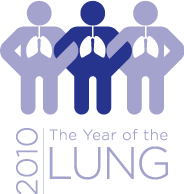May 28th, 2010 by StaceyButterfield in Better Health Network, Health Tips, Humor, Opinion, True Stories
No Comments »

 Want to know the secret to successful care of ICU patients? Think back to the advice your grandmother always gave, joked American Thoracic Society conference speaker Renee Stapleton, M.D., recently:
Want to know the secret to successful care of ICU patients? Think back to the advice your grandmother always gave, joked American Thoracic Society conference speaker Renee Stapleton, M.D., recently:
– Wash your hands.
– You can’t sleep your life away.
– Get some exercise.
– Sit up straight.
– Take your medicine.
– If you can’t remember it, write it down.
*This blog post was originally published at ACP Hospitalist*
August 21st, 2009 by CodeBlog in Better Health Network, True Stories
No Comments »

Just over a month ago, our unit had several H1N1 flu patients. And they were sick. Really really sick. They were also fairly young – 30’s to 50’s. I wondered at the time why the media hullabaloo about the flu had died down when I was seeing more and more patients in my unit who had it.
Last time I worked there was only 1 flu patient and they weren’t too sick (yet?) to require a ventilator. I was really glad to see the decrease in this particular patient population. I won’t lie – it’s frightening to be a nurse caring for someone with a highly communicable disease. Masks, gloves, gowns are all provided by the hospital, but I can’t ever shake the feeling that I’ve somehow come in contact with it despite these precautions.
And what of the times that we admit patients and don’t know they have a communicable disease? At least one coworker I know of contracted H1N1 from taking care of a patient who had it before we knew they had it.
I’m sure she was quite shook up – every single patient who turned up positive for the flu in our unit in that time period ended up literally fighting for their lives on a ventilator.
The most harrowing patient we had was a woman in her 30’s who was pregnant. Like the other patients, every time she coughed on the vent, her oxygen saturations would decrease to the 80’s and would take a long time to come back up. Unlike the others, though, she was so fragile that sometimes merely coughing on the vent caused her to go into asystole.
I’m somewhat jaded about coding people at this stage in my career. I remember, as a brand new ICU nurse, talking to a well-seasoned ICU nurse. She said that hearing “code blue” being announced overhead didn’t give her any kind of adrenalin rush anymore. At that time, I couldn’t imagine being in that frame of mind. Being new, I was expected to go to every code blue that was called so as to get experience. My heart started going into SVT at simply hearing the word “code.” If the word “blue” came after I practically had to defib myself before running off to defibrillate the patient.
I eventually got to a place where I could fairly confidently go run a code without freaking out. I’ve been an ICU RN for 11 years. In those 11 years, there have been some awful codes. Two stand out in my mind, and the absolute worst was on the pediatric floor. When I heard “code blue, pediatrics” overhead, my first (naive) thought was, “little kids code???” My second thought was to wonder if it was really an adult overflow patient. Sometimes the gyn surgeries went to the pediatric floor if there was no more room on the surgical floors. You know, maybe one of them got a little too much morphine and the nurse called a code. A little Narcan, a few bagged breaths and everyone would sigh with relief and go on with their day.
No such luck. After running full speed up 3 flights of stairs, I arrived at the room that had the most people spilling out of it only to find a bald, thin 5 year old in the bed. I thought I was going to be sick. PICU nurses – bless you all. I could not do that for any length of time.
She didn’t make it. Having been a nurse for a couple of years at that point, my naivety about the world already had a few chips and cracks in it. But on that day a huge chunk fell out.
Since then I’ve come to be more like that seasoned ICU nurse that I spoke with so early in my career. Along with the semi-jaded “oh crap, a code blue” comes a confidence in one’s abilities, so it’s not all bad.
However, watching that woman go into asystole, knowing that we would have to crash c-section her if she stayed in it? That took me back to the days when I was new and inexperienced. I’ve never seen anything like that happen. Although I was perfectly comfortable with my (pre-arranged) personal role, the overall situation would be completely new to me.
Although HIPAA prevents me from saying much more, I will say that I did not have to experience that situation; not because I was off when it happened but simply because it never happened.
If it had, it surely would have made my top 3.
*This blog post was originally published at code blog - tales of a nurse*
 Want to know the secret to successful care of ICU patients? Think back to the advice your grandmother always gave, joked American Thoracic Society conference speaker Renee Stapleton, M.D., recently:
Want to know the secret to successful care of ICU patients? Think back to the advice your grandmother always gave, joked American Thoracic Society conference speaker Renee Stapleton, M.D., recently:











